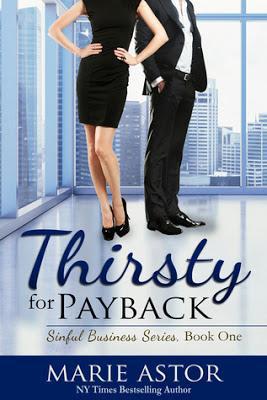
Photo by Chris George
Mike Sacks has contributed humor pieces to The New Yorker, McSweeney’s, and other publications (his wedding-tweets piece is here); he has crafted two books of interviews with comedy writers, the more recent of which is called Poking a Dead Frog (both are listed on his Amazon author page); and he feeds Twitter often. Because the current political situation, in the United States and elsewhere, seems like either a very good or a very bad occasion for comedy, I decided to ask him what he thinks. (Disclosure: I worked with Sacks at Vanity Fair, where he’s on the editorial staff.)
You’ve been talking to comedians for years. How many of them do political comedy—what proportion, as an estimate?
Very few. Most don’t do anything overtly political beyond tweets about how much they’re horrified of Trump. My interest isn’t in political comedy. I grew up in the D.C. area and was raised on a horrible diet of Mark Russell and the Capitol Steps. I hate political comedy. I find it boring. It ages very poorly. I prefer character-based comedy. This style, to me, lasts much longer than anything that is tethered to current events.
Are we just making ourselves feel better when we ridicule a politician, or can humor accomplish something more?
Well, I’ve been thinking about this recently, and I don’t know. It almost feels as if we’re flicking pebbles at the Trump Tower. Does it have any resonance? Or are we appealing to people who just want to read and laugh at the same issues we agree and disagree with? If you look back to Johnny Carson, he’d make fun of politicians and it would seem to have some sort of resonance. Or S.N.L. would make fun of a president and that characterization would seem to stick. I think people now, though, look for comedy similar to how they look for their news shows or their newspaper op-eds: merely to reinforce what they already think. The purpose of satire is to bring about a new view or philosophy to a reader or viewer. I don’t see this happening now. I think we’re all swirling around our own little drains independently. And I can’t see this as being a healthy thing.
There are at least two risks to comedy. One is that you fail to be funny. The other is that you’re funny and it costs you. Isn’t the jester more likely to be beheaded than the king?
Yes, true. And the jester isn’t the one making the important decisions. Then again, people like the jester more. The situation now in comedy is that you can be a jester and be criticized by all sides: by the side that disagrees with you and doesn’t find you funny, and also by the side that agrees with you. It’s very easy to offend these days. Too easy. And there’s a feeling that if someone is offended, they have the right to put a stop to what’s being said. That you not only have to listen to and respect this person’s rights but you also have to heed their demands. There doesn’t anymore seem to be a philosophy of, “Well, I don’t like it, but what’s it for me to tell him or her what to say or do?”
Laughter is big business. Comedy clubs are everywhere. People take improv classes to advance their career, no matter what their job is. There’s been a comedy channel on cable since 1991. Doesn’t that make comedy part of the establishment? To put it another way, how can you make fun of the people in power if you’re part of the people in power?
Right, but that extends only so far. There’s media power and then there’s political or government power. Jon Stewart is as big as many politicians when it comes to Q ratings, but he’s not capable of changing people’s lives for the better or worse through government policy. So, in that sense, comedians are not on the same level as politicians, dictators, etc.
One of the devilish things about Donald Trump during the campaign was that it was hard to tell how to take him. He would toss off remarks that’d make you think, “I can’t believe he just said that,” which is how we’ve responded to a lot of groundbreaking comedians, where the shock was part of the point. It looks now as if we should’ve taken him seriously but also literally all along, and yet he’s still coming up with this stuff that sounds like a joke, such as his claim about large-scale voting fraud in the election. Is Trump our first comedian-president?
No, because he has zero sense of humor. All great presidents had a very high humor IQ, be it Kennedy or Obama. Minus Reagan. I think to be a good comedian you have to have a moral compass that points north, to goodness. I don’t see that with Trump. It’s not about being liked or earning laughs with Trump. It’s about money and power and god knows what else.
President Trump may look like a “total disaster” from a liberal political point of view, but doesn’t that make him a juicy target?
I suppose, and yet I’d rather be comedically bored for the next eight years.
Crazy things are happening in the rest of the world too. The Philippines has a president who’s practically a gangster—Rodrigo Duterte, whose nickname is “Duterte Harry.” He’s trying to reinstate the death penalty; he says it failed in the past because not enough people were killed, and he promises to hang 20 people a day. The Italians have a political party that was co-founded by a comedian, the Five Star Movement. Elsewhere in Europe there’s the Pirate Party. Some of the populist movements sound like they started as a joke, and others seem to have no sense of humor at all—as if they were one part German. (Apologies to my German friends.) It’s like everything is ironic but nothing is funny anymore, or nothing is really a joke but everything is laughable. Are these high times for comedy, or is it a treacherous time?
Maybe, but it’s exhausting for the human spirit. It feels like homework to have attention being taken away from other projects to keep one eye on this lunatic so that he doesn’t bring down the world.
Comedy, like art, often depends on there being rules to be broken, lines to be crossed. Are there any rules anymore?
There are always rules when it comes to comedy. I don’t think comedy can work—or, at the very least, last—if it’s not on the side of goodness and decency. If the lodestar isn’t in the correct position. I mean, these are the laws of just being a human being—a decent person. I don’t think you can cross these lines and succeed in comedy.
An old joke has it that a courtier says to his king, “Sire, the peasants are revolting,” and the king replies, “Yes, they certainly are,” which is essentially a monarchist’s attack on everyone who backs democracy. But last November an Economist blog post argued that comedians shouldn’t make fun of a politician’s supporters—they should just focus on the politician. What’s your view on that?
I disagree. This doesn’t surprise me coming from The Economist. Their sense of humor doesn’t seem as sharp as it could be. I mean, who votes a politician into power? Himself? No, it’s his or her supporters. In the case of Trump, the individual voters perhaps shouldn’t be mocked. But collectively I think they did a very stupid thing. So why not go after them? This isn’t journalism. Maybe it’s even more important than journalism. And it’s all personal anyway. If a comedian wants to go after someone, let him or her. Are they right to do so? Does the humor work? If so, yes, they’re right to do so. Comedy can’t be a group endeavor. Comedians shouldn’t have to hold focus groups to determine what is appropriate.
Let’s be ecumenical here and recognize that there are jokes to be made about both of the main political parties in the U.S., not to mention the smaller ones. A few good lines came out of the recent Alfalfa Club dinner, which an Axios newsletter described as an “annual gathering of tycoons, national leaders and elder statesmen.” Vice President Mike Pence got one off about the kind of people Trump has been appointing when he said, “Of the eight richest people in the world, five are in this room. I feel like I’m at a Cabinet meeting.” And Erskine Bowles, a former White House chief of staff for Bill Clinton, said, “What a year: Angela Merkel has required people in her country to stop wearing full face veils. And here at home, Hillary has begun wearing one.” Have you heard any good right-wing jokes?
No. I’m not sure you can be funny (truly funny) and be conservative. I think in order to be really funny one can’t be in a position of power (or even wanting to be in a position of power). I think you have to be on the outside looking in. And not the inside looking out.
You’ve written humor pieces, and you’ve got lots of other material on the subject out there. Do you want to make a plug for yourself here?
Yes. Please listen to my podcast, Doin’ It with Mike Sacks. The website is here, the podcast is on iTunes here, and it’s available on Spotify for mobile devices here.





